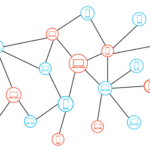One in six people will have a stroke during their lifetime according to statistics and after the stroke occurs, there is a 30 day window in which recovery is thought to occur the most. After that, recovery can still happen but a large part of the recovery process focuses on rehabilitating the physical and mental abilities that are left. For example: a person may have limited speech but special exercises will work on getting that speech to as high a level as possible. A person may have been affected physically but physiotherapy will work to strengthen those weaknesses and get the person’s physical abilities to as high a normality as is possible.
During both short term and long term recovery periods, loved ones often care for family members. However, the specialists at The Live-in Care Hub say that additional care support is usually required – ranging from home help services, to live-in care, or possibly nursing home care and care homes. In most instances, both the client and their family would prefer care and rehabilitation to remain at home where everyone is able to work together on getting life back to normality.
Tailor-Made Care Plans
One of the most incredible aspects of at-home care is that the plan is totally unique to the client’s needs. From pet care, to special meals, physiotherapy, personal care, holiday accompaniment, carers are able to provide the services needed to give their client the best possible quality of life. If they are unable to provide nursing care, then they can coordinate with the visiting nurses on care and medication plans. Best of all, it all happens in a place the client feels the most comfortable: their home. You get to choose the right carer, and the most suitable care plan for your families needs, all within the place you feel most comfortable and happy.
Keeping Things The Same
For a person who’s world has essentially just been flipped upside down, keeping things as normal as possible for them is so important. This is particularly true with patients who have experienced some memory loss and confusion. The home contains many comforts, memory triggers and stimulus that will at the least provide a familiar place for recovery, and at the most help in recovery and rehabilitation. It is also the best place for any rehabilitation exercises as the more relaxed a person is, the more able they are to focus on the challenges they face during any speech therapy or physiotherapy.
The home really is the best place for stroke recovery, providing a safe space for a person to move forward with their life following a major life-changing event.
Finding Care
If you want to find an in-home carer or you want help looking into care home UK options, you will want to spend some time researching all aspects of appropriate care. Speak to your GP, your social worker, and look at getting a care assessment so you know exactly what level of care is needed. You can also find lots of information at:
- Age UK
- Citizens Advice
- NHS
- UK Care Guide.
Do take your time and give yourself the opportunity to research all your options thoroughly. The type of care you choose will have a huge impact on the quality of life your loved one has, and on their potential for rehabilitation and recovery. With the right care, they have every chance of living a full and happy life in the next chapter of their life.








